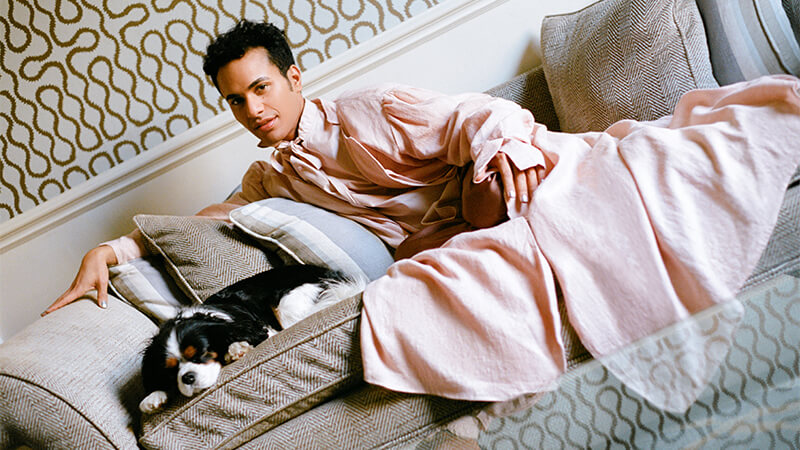The South American Singer Opening The World Of Opera To A New Audience
The art of the male soprano is back. With the last official ‘castrato’ (a male singer who was castrated before puberty) having retired in 1913, women have largely sung their music since, however, Samuel Mariño, the 29-year-old Venezuelan-born, Berlin-based opera singer is altering this narrative. With the release of his debut solo album Sopranista last year, and recently touring with the Australian Brandenburg Orchestra, he is making waves. But it wasn’t always this way.
His childhood in Caracas is tainted by memories of relentless bullying for his high-pitched speaking voice and homosexuality. So much so he no longer associates Venezuela with ‘home’. “I was ashamed to talk about it with my parents. I would always say I was sick [at school], and my dad would come and pick me up. I wasn’t actually sick, I just couldn’t face being [there],” he says via Zoom from his Berlin apartment. “Music helped me a lot. I would sit in my room and listen to pop, and it would make me smile.”
When, at 13, his voice half-broke, a doctor informed him that he could either correct this through surgery or consider a career in opera. With the encouragement of his mother, Mariño chose the latter. He began studying piano and voice at the National Conservatory in Caracas and performing opera with the Camerata Barroca, where he worked with renowned conductors such as Gustavo Dudamel and Theodore Kuchar. This sparked his passion for the baroque repertoire, leading him to Europe.
The budding singer left Venezuela to further his musical studies at the Conservatoire de Paris, under the mentorship of American soprano Barbara Bonney, where he faced the new challenge of winning over the European opera elite. “People have often judged me before I have even opened my mouth,” he says. “They see the way I dress and think I am going to be bad; it is also a very white/European world, which is definitely complicated.”
The daring fashion choices Mariño makes go beyond the aesthetic; they have, he explains, a personal message of liberation. “It is political, so I put a lot of time into designing my clothes to represent freedom… [also] my God, wearing a skirt is just so comfortable,” he adds with a laugh.
Mariño’s love for opera is undeniable, but there’s also an awareness of the changes required to help his beloved art form maintain modern-day relevance. Performers like him are working to help the world of opera appeal to younger generations. Gus Christie, executive chairman of the UK’s Glyndebourne Opera House, believes “we need good champions and communicators. It’s been going for hundreds of years and there are a lot of stigmas and misconceptions [around] opera… It’s amazing how many of those who have never been very keen at first are blown away by the music. So the more personalities to help spread the word, the better.”
Adamant not to be pigeonholed, the soprano has dreams to break into new genres – Mariño is a dedicated lover of pop and wants to experiment with his classical style. The hope is to reach more people with his message of fearless emancipation: “I want to free others like my music has freed me.”
Pia Brynteson is editorial assistant at Service95
Creative Direction: Pia Brynteson. Photography: Dominik Slowik. Photography Assistant: Cult Chen. Styling: Caitlin Jones. Makeup: Tina Khatri. Designer: Meerim Mamatova




